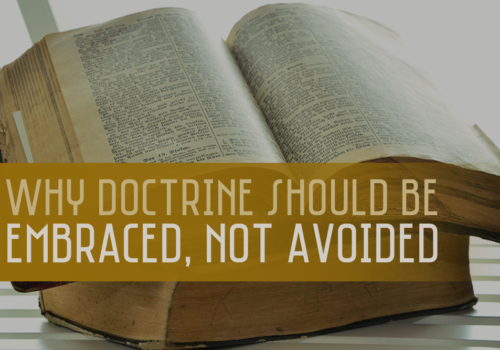Truthfully, I couldn’t tell you how many times I have read through the New Testament in my 40 years as a believer.
Following my conversion in 1982, I completed it the first time by reading 30 minutes each every morning. I was so ignorant of the Bible I still remember being disappointed when the “red letters” stopped and thinking Jesus wasn’t speaking anymore.
That discipline has continued over the years by reading it through chronologically; focus on themes; and as printed in our Bibles. Additionally, various versions would be used, just to broaden my awareness of how others would be sharing the Scriptures.
In reading The New Testament in Modern English by J. B. Phillips, I was intrigued by what Phillips shared in the introduction to his latest translation:
The last, but not least important, reason for making a fresh translation was to check the English itself. It must be current and easily understood, and I must confess that I thought that the twenty-five years since the publication of Letters to Young Churches might have seriously “dated” the English I used then. Rather to my surprise only a few alterations were necessary…. A couple of examples may illustrate my meaning the “little tin gods” of First Peter 5:3 (an expression no longer current) have become “dictators.” The colloquial use of the word “plutocrats” of James 5:1 has been changed to “men of influence.”[1]
“Little tin gods” was a new term to me. I learned that it meant “to behave as if you are much more important and powerful than you really are.”[2] The phrase seems to have originated in Rudyard Kipling’s Plain Tales from the Hills.[3]
Phillips had translated the Greek word katakurieúō in Peter’s letter from “being lords over” to “little tin gods” as seen below:
“Neither as being lords over God’s heritage, but being examples to the flock” (1 Peter 5:3 KJV, emphasis mine).
“You should aim not at being dictators (little tin gods) but examples of Christian living in the eyes of the flock committed to your charge” (insertion mine).[4]
Katakurieúō is used four times in the New Testament, three of which relate to natural interactions (Matthew 20:25; Mark 10:42; and 1 Peter 5:3). While there may be obvious black-and-white dictatorial and self-important practices in relationships, there are also many shades of gray. For example, what one would define as self-important others would dismiss as a strong personality.
However, the fourth use of katakurieúō leaves no room for personal definitions or self-created importance. Either one has rightful authority, or one is over-playing and over-stating their weightiness. This fourth use of the word is seen in Acts 19 from Luke’s account of the seven sons of Sceva,
“And the man in whom the evil spirit was leaped on them, and overcame (katakurieúō) them, and prevailed against them, so that they fled out of that house naked and wounded” (Act 19:16, emphasis mine).
The sons proclaimed to be something they were not. In the eyes of man, who were duped by the vagabond’s self-proclamations, Sceva’s boys were men of importance; however, in the spirit realm they were, in actually, “little tin gods” as the evil spirit exposed their actual weightlessness and not the weightiness they announced.
But then, fact and not fiction is the foundation of the spiritual kingdom. Jesus is truth whose eyes are a flame of fire that burn away the tin of human pretense. He knows what truly is in man (cf. John 2:24, 25).
How do we avoid being “little tin gods?”
Focus, first and foremost, on our relationship with Christ by letting His life show forth through our life and let our tinny propensities for fleshly preeminence die out to the gold, silver, and precious stones of a selfless life under His lordship.
And be content with who we are in Him. Remember all that really matters is not what man thinks but what God knows!



